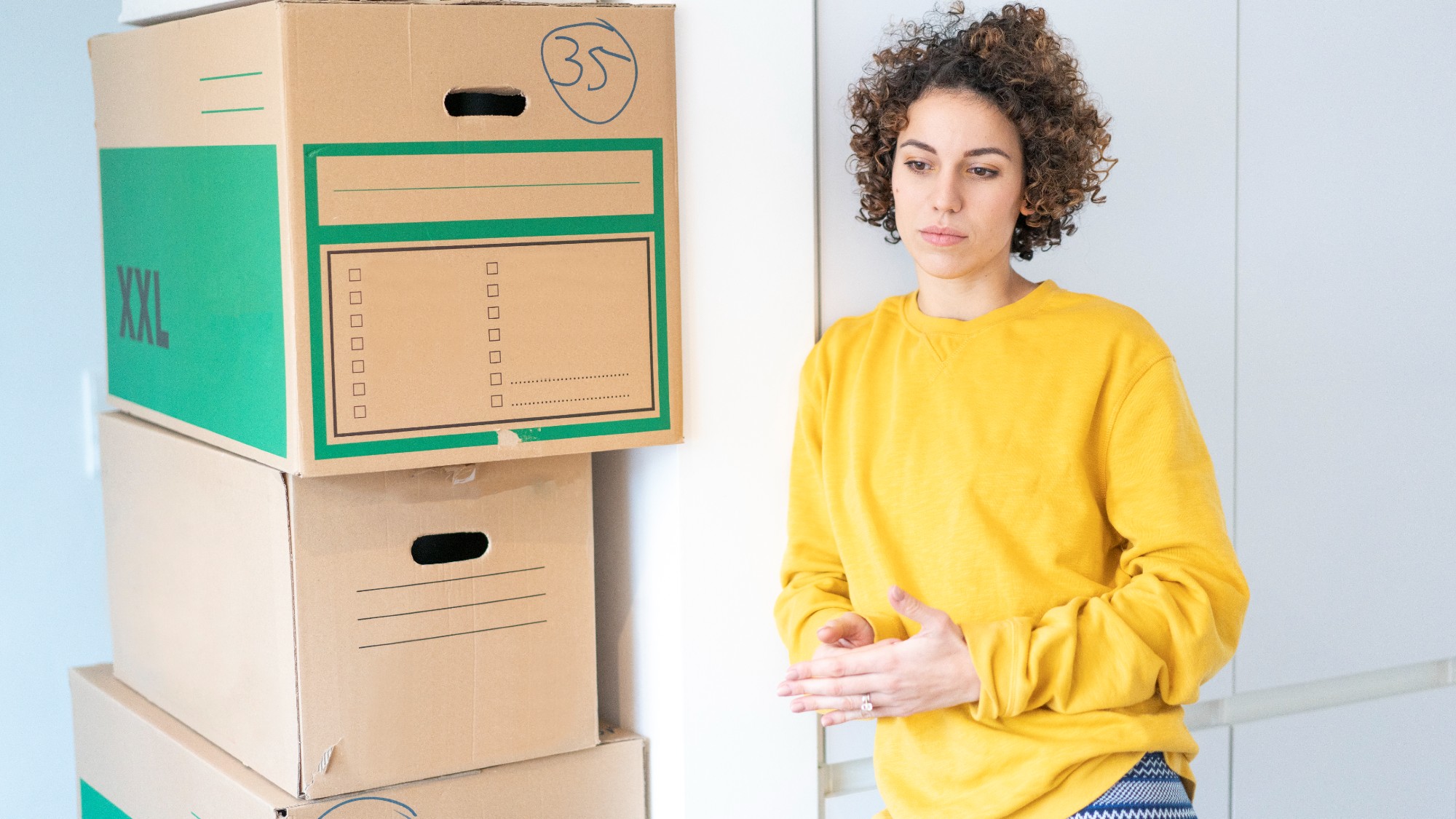Pension vs. property: which is best for your retirement?
While saving into a pension can have tax-free benefits, some will be persuaded by rising property values

A free daily email with the biggest news stories of the day – and the best features from TheWeek.com
You are now subscribed
Your newsletter sign-up was successful
A pension and property can provide long-term returns to fund your retirement – but which is the best bet?
People will “spend years poring over this question” as they approach retirement, said The Telegraph. “The right decision could mean the difference between thousands of pounds in income,” added the newspaper.
Research published this year by Standard Life suggested that baby boomers – those born in the post-war years between 1946 and 1964 – “greatly favour” funding their retirement with their pension. Meanwhile, more of those in Generation Z – people born in the late 90s and early 2010s – plan to use a property as their main source of income.
The Week
Escape your echo chamber. Get the facts behind the news, plus analysis from multiple perspectives.

Sign up for The Week's Free Newsletters
From our morning news briefing to a weekly Good News Newsletter, get the best of The Week delivered directly to your inbox.
From our morning news briefing to a weekly Good News Newsletter, get the best of The Week delivered directly to your inbox.
Both routes have pros and cons. Here is what to consider
Return on investment
Property prices have boomed in recent decades. This “has given rise to the idea of a home not just as a castle”, said City A.M., “but as bonafide crock of gold which can be used as an alternative to a pension”.
The average UK property was worth £91,199 at the end of 1999, according to the Halifax House Price Index. By May 2023, this had risen to £286,532.
That is a return of 214%. Plus you will get a “pretty steady income”, said NerdWallet, if you rent it out. It therefore may not be surprising that some retirees will be attracted to bricks and mortar to fund their later years.
A free daily email with the biggest news stories of the day – and the best features from TheWeek.com
In contrast, a pension lets you put money into the stock market by investing in funds and shares. You will benefit from investment growth as well as compound interest, explained Unbiased, where “the interest itself earns more interest and the whole pot grows faster”.
Property may feel more tangible but pensions have actually “trumped” bricks and mortar over the past 25 years, said This Is Money. The personal finance website cited research from Schroders showing a property worth £100,000 25 years ago would be valued at an average of £454,000 as of February 2023.
In contrast, if you invested £100,000 in the global stock market through a pension, it “would have swelled to around £631,000”.
Tax considerations
There are tax benefits to investing in a pension. Contributions get tax relief, which is where “some of the money that would have gone to the government as tax goes towards your pension instead”, explained MoneyHelper, therefore boosting how much you are putting into your retirement savings.
Additionally, there are no income or capital gains tax charges on money invested in a pension, which can make a “significant difference” to the value of your pension pot over the years, said Unbiased.
There may be tax to pay once you access your pension. The first 25% of a withdrawal is tax-free but the rest is taxed as earnings. As a result, the more money taken from a pension pot could result in a higher tax bill.
In contrast, landlords need to pay an extra 3% stamp duty charge when buying an additional home, plus changes to mortgage interest tax relief have “reduced profits for property investors”, explained NerdWallet. Landlords also have to pay income tax on rent and there may be capital gains tax to pay if you sell a buy-to-let property and it has increased in value.
This suggests that when it comes to tax, added Unbiased, “pensions win hands-down”.
Costs
You don’t need a large sum to start a pension but there could be management, platform, fund, trading and adviser fees to pay.
While these fees might at first seem small, they could mount up when considered together.
The costs of buying a buy-to-let property can also “rack up”, warned Rest Less. These include the deposit, stamp duty, and legal and valuation fees.
What are the risks?
As with any investment, the value of an asset, whether it is a pension or property, can drop.
Property is seen as the classic “passive income”, said Frazer James, but you will still have the “hassle” of maintaining it, dealing with estate agents and missed rent payments. Pensions are “less hassle”, added the advisory firm, but they also need to be monitored.
A downside of a pension is that you cannot access it until age 55.
In contrast, you can receive property income from any age but “if you’re unlucky and need to sell during a dip”, warned NerdWallet, you could end up with less than you had hoped.
Strike a balance
Solely investing in property or a pension for retirement could prove to be a “risky strategy”, said RestLess, as it is always “considered sensible” to avoid relying on a single asset or investment.
For this reason, it can be worth seeking professional financial advice if you are unsure which route is best for you and to understand how each option works.
A pension is the “most cost-effective and straightforward option” for most people, said NerdWallet. But if you have a passion for property, “there is nothing to say you can’t do both”.
Marc Shoffman is an NCTJ-qualified award-winning freelance journalist, specialising in business, property and personal finance. He has a BA in multimedia journalism from Bournemouth University and a master’s in financial journalism from City University, London. His career began at FT Business trade publication Financial Adviser, during the 2008 banking crash. In 2013, he moved to MailOnline’s personal finance section This is Money, where he covered topics ranging from mortgages and pensions to investments and even a bit of Bitcoin. Since going freelance in 2016, his work has appeared in MoneyWeek, The Times, The Mail on Sunday and on the i news site.
-
 What to know before filing your own taxes for the first time
What to know before filing your own taxes for the first timethe explainer Tackle this financial milestone with confidence
-
 The biggest box office flops of the 21st century
The biggest box office flops of the 21st centuryin depth Unnecessary remakes and turgid, expensive CGI-fests highlight this list of these most notorious box-office losers
-
 What are the best investments for beginners?
What are the best investments for beginners?The Explainer Stocks and ETFs and bonds, oh my
-
 Six ways to boost your finances in 2026
Six ways to boost your finances in 2026The Explainer It’s not too late to make a new year’s resolution to finally get organised money-wise
-
 What's a bridge loan and how could it make buying your next home possible?
What's a bridge loan and how could it make buying your next home possible?The Explainer This type of loan has both pros and cons
-
 Housing costs: Is deregulation the answer?
Housing costs: Is deregulation the answer?Feature Washington, D.C.’s NoMa neighborhood is now leading the nation in new apartment construction
-
 What to do if you want to move but don't want to give up your low mortgage rate
What to do if you want to move but don't want to give up your low mortgage ratethe explainer 30-year mortgage rates are currently averaging 7% — and homeowners who secured rates closer to 3% during the pandemic are reluctant to sell their homes
-
 What taxes do you pay on a home sale?
What taxes do you pay on a home sale?The Explainer Some people — though not many — will need to pay capital gains taxes upon selling their home
-
 Hoping to sell your house in 2025? Here's what to expect.
Hoping to sell your house in 2025? Here's what to expect.The Explainer Will the housing market favor buyers or sellers this year?
-
 The caravan mis-selling 'national scandal'
The caravan mis-selling 'national scandal'In The Spotlight Legal action begins after people lose life savings and are forced to sell homes to cover 'hidden costs'
-
 How can you save on homeowners insurance?
How can you save on homeowners insurance?The Explainer With the rise in extreme weather, house protection is a non-negotiable